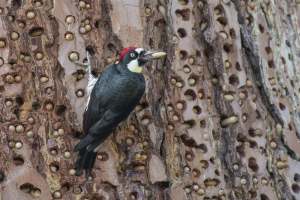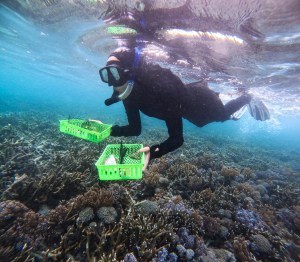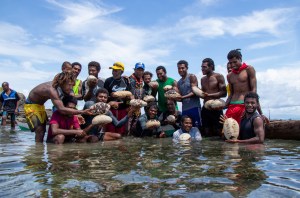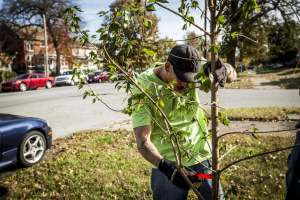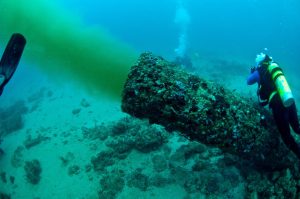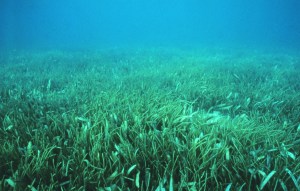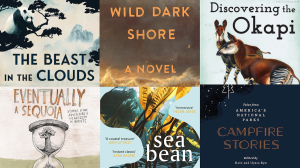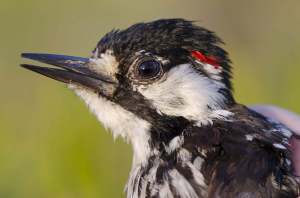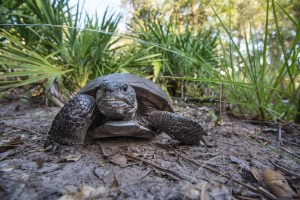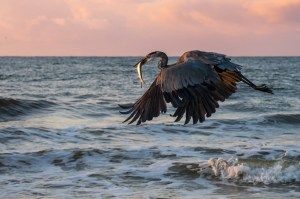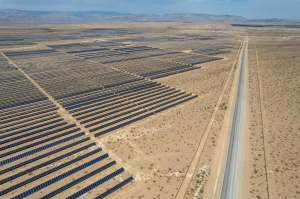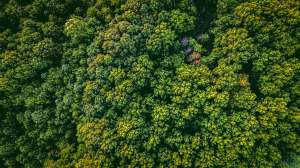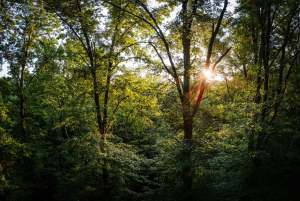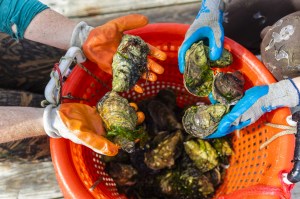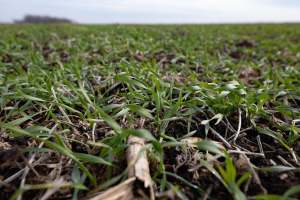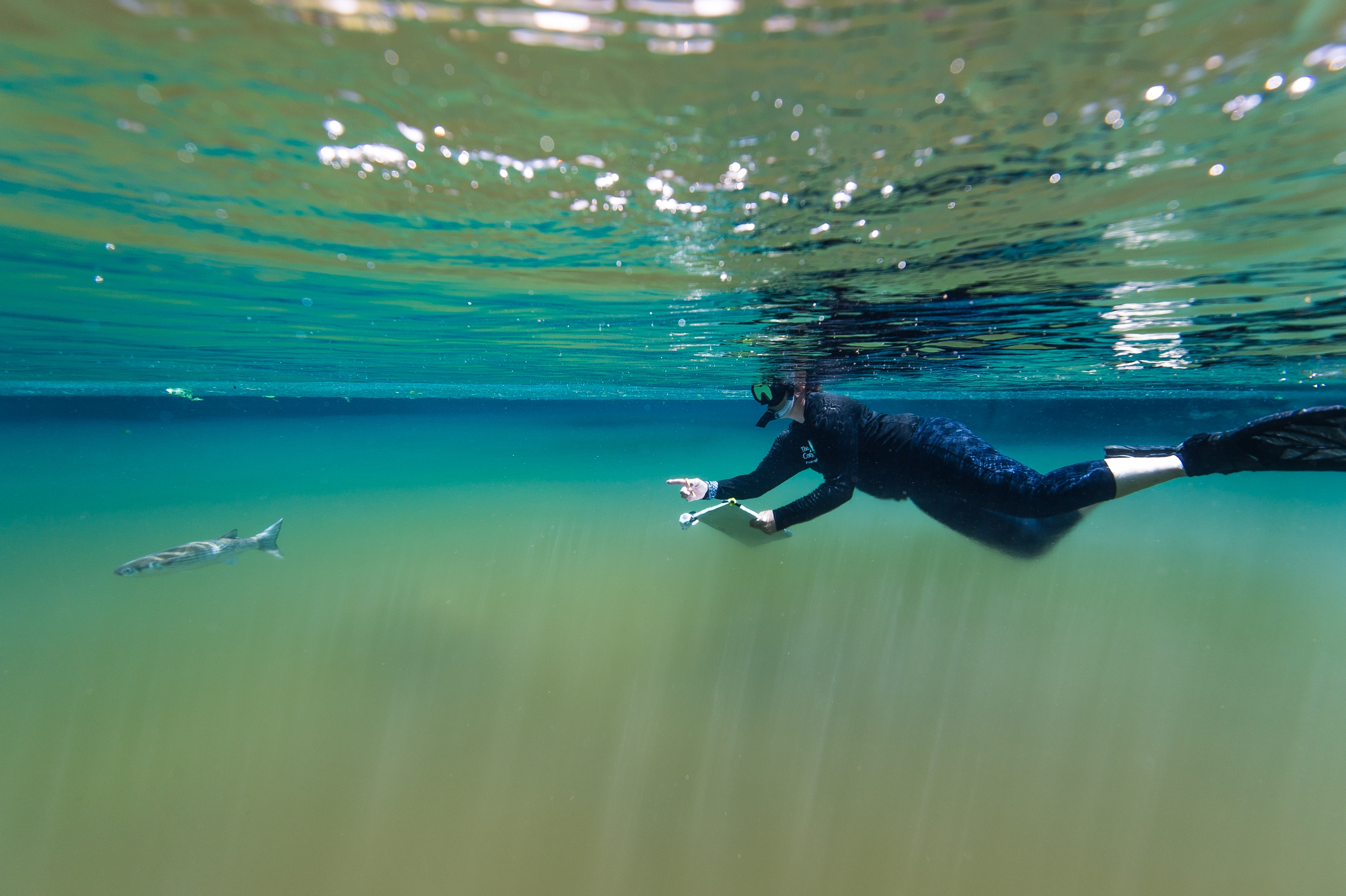
Conservation Science
Protecting nature is what we do. Science shows us how. We tell the stories behind Nature Conservancy science — from the field to the research lab, and everywhere in between.
From the Field
We get our boots dirty. Join us as we cover science in action, from stormwater drains to the Indonesian rainforest..

It Takes a Village: What Birds Teach Us About Cooperation and Family
Why do some birds raise chicks that aren’t their own? A look at the surprising strategy of cooperative breeding and what drives it.
Stress-Testing Corals to Find Raja Ampat’s Most Resilient Reefs
Low-tech field science and community partnerships combine to help identify the most climate-resilient reefs in Raja Ampat.
Case Study: Sustainable Sea Cucumber Fisheries Offer Both Rewards & Challenges
Sustainable fisheries can be a win-win solutions for both conservation and local communities, especially in the Indo-Pacific. But establishing them comes with unique challenges.
Greener Cities, Cleaner Air: How Urban Design Can Help Save Native Birds
Urban greening and pollution reduction restore bird habitats. This research shows how conservation transforms cities for people and nature.
Wastewater Pollution and the Fight for Coastal Resilience
Disover the urgent issues of wastewater pollution and how sustainable practices can help restore our vulnerable ecosystems.
Can We Turn Back the Tide on Wastewater Pollution?
Tampa Bay proves recovery is possible: decades of science and collaboration restored seagrass and water quality—offering lessons for coasts worldwide.
Science for Strategy
Science is strategy. Learn from 600 scientists & our partners researching the best way to protect nature.

When Deer Marks Glow in the Dark?
It’s true: deer signs glow in the dark. And we’re not talking about signs along the road.
Cool Green Holiday Book Review 2025
Six of our favorite conservation and nature books to enjoy this holiday season.
Grazing Lands as Climate Solutions: Key Practices for Carbon and Biodiversity
Study finds wetland restoration, pasture planting, and adjusted grazing can boost soil carbon and cut emissions—but more research is needed for lasting impact.
Family, Survival and Change: The Secret Life of the Red-cockaded Woodpecker
Lauren Pharr uncovers how family bonds and teamwork help red-cockaded woodpeckers thrive in longleaf pine forests, even as climate change reshapes their world.
Meet the Gopher Tortoise, Hero of the Longleaf Pinelands
Gopher tortoises are one of Florida’s most fascinating reptiles, and a keystone species of the longleaf pine ecosystem.
Growing Seagrass? Better Add a Sprinkle of Bird Poop
TNC and its partners are restoring habitat with the help of a little bird-poop fertilizer.
Science Brief
Your hub for the latest peer-reviewed research powering conservation action.
Archives
Mangroves Slash Hurricane Damage in Florida by Billions
In Collier County alone, mangroves cut annual losses by $67M and prevented $4B in damages during Hurricane Ian.
Solar’s Hidden Footprint: Why Accurate Land Data Matters for Conservation
New research reveals solar datasets underestimate land use by up to 34%, masking habitat loss in natural areas.
Forest Carbon Projects May Help More Than We Thought—New Study Finds Leakage Often Overestimated
New findings challenge current carbon market accounting practices and advocate for more nuanced, carbon-specific leakage estimates to ensure integrity and unlock greater investment in Climate Smart Forestry as a natural climate solution.
Maximizing Climate Returns: Albedo Accounting for Smarter Carbon Investments
New research shows how the albedo effect—Earth’s reflectivity—influences how well forest restoration projects can help cool the Earth.
Aquaculture Can Benefit Blue Carbon Ecosystems
A new review, led by TNC scientists, explores the potential for bivalve aquaculture to benefit blue carbon ecosystems.
How Living Cover Could Help Heal the U.S. Corn Belt
Regenerative ag practices—like cover crops, agroforestry, and pastured livestock—could reduce nitrate loss, erosion and emissions.
